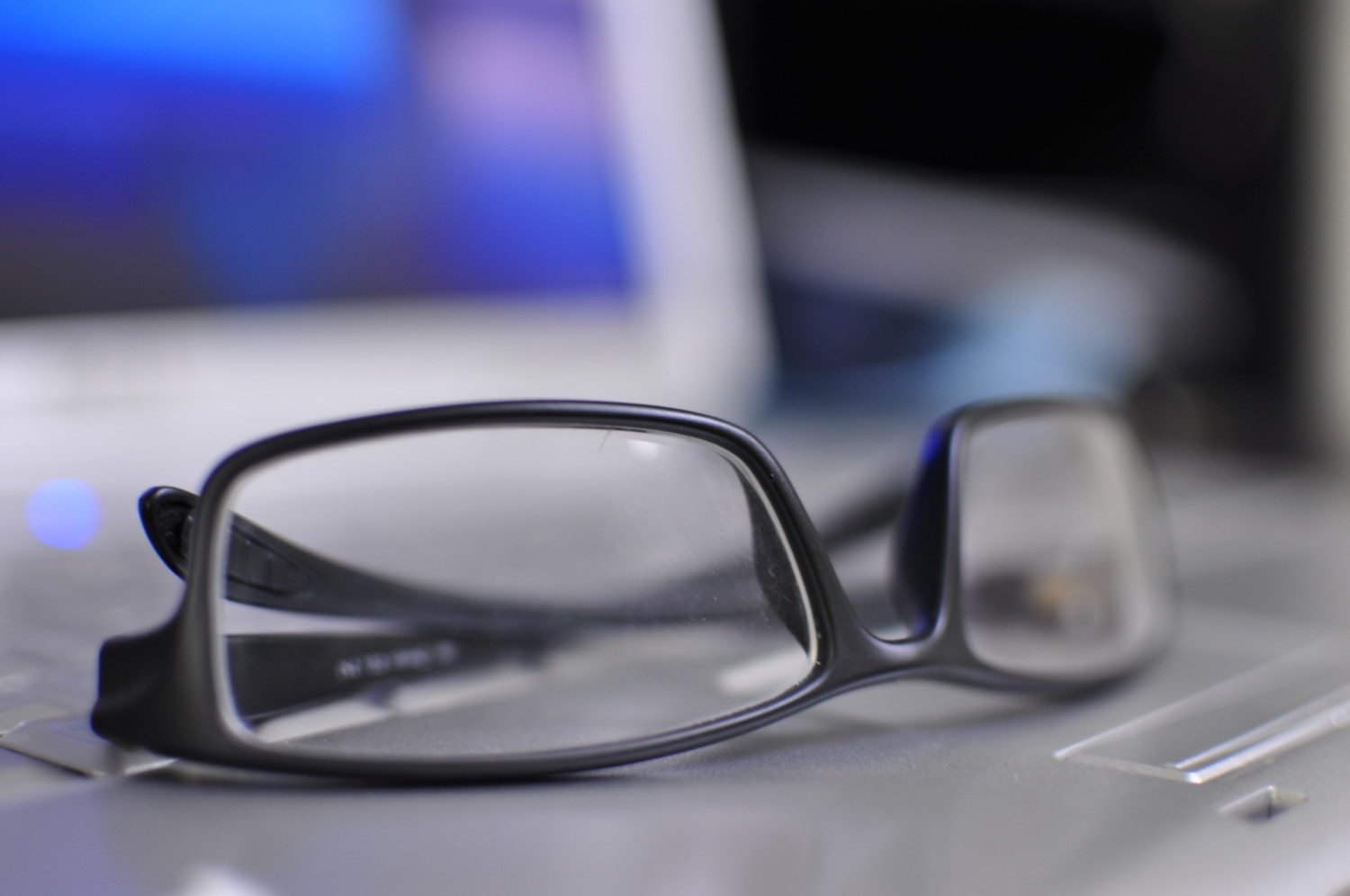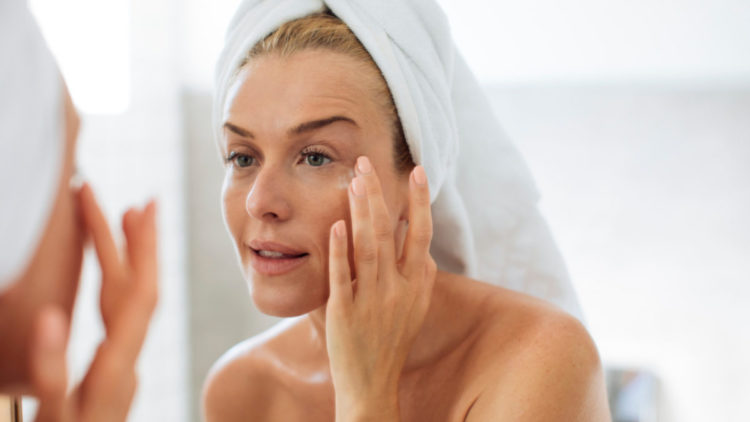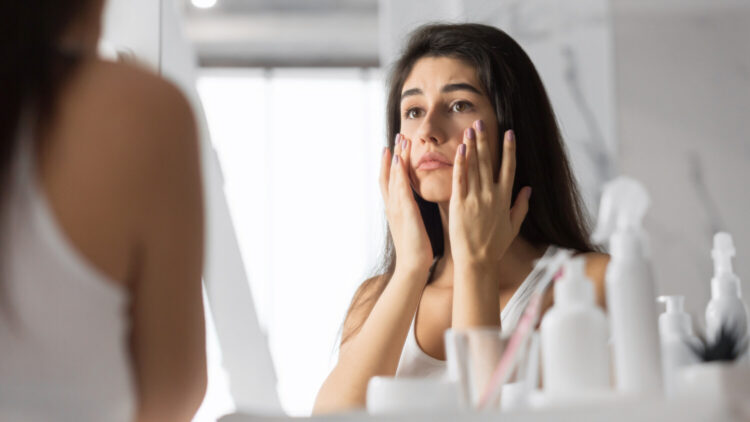Why protective computer glasses may not be worth the money

Think about it. How long do you spend staring at screens on an average day? From computers and TVs to phones and tablets, chances are you’re spending the majority of the day with your eyes glued to a glowing screen. Whether at work or at leisure, screens play a crucial role in our everyday lives—there’s no getting around that.
According to Nielsen’s Total Audience Report, Americans aged 18 and older spend more than 11 hours a day looking at electronic media. More specifically, data from the American Optometric Association (AOA) reports that the average American employee spends seven hours a day on the computer. And if we’re being totally honest with ourselves, in today’s world of social media, Netflix, emails and everything you need to get done outside of work, the number of hours spent looking at a screen is probably higher.
Are Your Eyes At Risk?
It shouldn’t come as a surprise that staring at screens for hours on end could potentially cause harm to your eyes and vision. It’s becoming increasingly common for people to turn to computer glasses as the cure-all for any undesired side effects of blue light, which has been linked to eyestrain, dry eyes, cellular damage and disrupted sleep cycles. While eyewear companies are claiming that their products can protect people’s eyes from the evils of blue light, many experts aren’t fully convinced that these products are all they’re touted to be.
So we’re here to get to the bottom of the question that’s on many screen-starers’ minds: Should I invest in computer glasses?
For starters, scientific research has proven that certain types of light, such as ultraviolet light from the sun, do increase the risk of eye diseases, cataracts and growths on the eye, and cancer. Moreover, it’s universally agreed upon that staring at screens for long hours does cause pesky side effects on your eyes such as dryness and fatigue, in addition to upsetting your sleeping cycles.

“Certainly backlit targets such as computer screens, which includes tablets and other similar handheld devices, can cause eye strain, which is a syndrome related to muscular work of proximal focus, in the act of focusing, eye coordination and tracking,” explains Clifford A. Lee, O.D., F.A.A.O. at Invision Optometry in San Francisco, California.
Other common effects include reduced blinking rates, which lead to increased tear evaporation and dry eye, continues Lee. The burning, headache, tired eyes, blurred distance vision are all temporary symptoms from “staring” at the device. But exactly why looking at a backlit, scrolling target causes these issues compared to, say, reading print on paper, has been a subject of debate.
Opinions really start to splinter on the topic of whether or not these glasses can prevent actual eye disease. Companies such as Felix Gray and Gunnar Optiks, which make computer glasses, clearly state that their products protect against blue light, something that may contribute to macular degeneration. Keep in mind that these products aren’t denoted as medical devices and thus aren’t regulated by the U.S. Food and Drug Administration.
While Felix Gray products work to filter blue light and eliminate glare, the amount of radiation from a computer has yet to be proven a factor in contracting an eye disease. Recent studies, including one reprinted by the National Library of Medicine, state that there is no measurable UVA or UVB radiation from computer monitors.
The main takeaway from concluding statements? That electronic devices pose no health risk to the population. While it is possible that blue light can lead to eye disease, there is not enough information and research to substantiate that claim. Yes, ophthalmologists and optometrists can tell why your eyes are feeling less than perfect after staring at screens all day, but this doesn’t mean you’re in for long-term damage.
“The use of backlit screens does not ‘deteriorate’ your eyes. The term deteriorate would imply that the eyes become progressively worse for some reason and can be misconstrued to mean permanent damage,” Lee says.
According to the vision professional, there are two areas that are popularly discussed and studied: blue light emission and myopia (nearsightedness) progression. While the former is important in our circadian rhythm, there is no firm evidence it causes specific damage to the retina as many claim. As for the connection of “proximal focus” (staring at screens) and myopic progression, it has been studied for decades, even before computers, says Lee.
“The link continues to be studied, however, no conclusive or compelling evidence has emerged linking the two,” he says.
Are These Glasses Worth It?
Some who have tried out computer protection glasses, such as EyeBuyDirect’s Digital Protection Lenses, have experienced positive results like reduced headaches, eye strain and overall discomfort while staring at screens. That said, others couldn’t discern a real difference.
Could computer glasses combat some of the discomfort caused by staring at screens for long periods of time and potentially aid in helping you get a good night’s sleep? Yes. That said, will wearing them daily likely protect you from eye diseases or prevent your vision from worsening? No.
For glasses that range from $25 up to $249, it seems like a judgment call based on discretionary income and how greatly screentime personally affects you. When in doubt, see a trusted optometrist who can offer a sound explanation and make a recommendation dependent on your situation.
Has wearing computer glasses helped your vision specifically? Would you recommend them?








